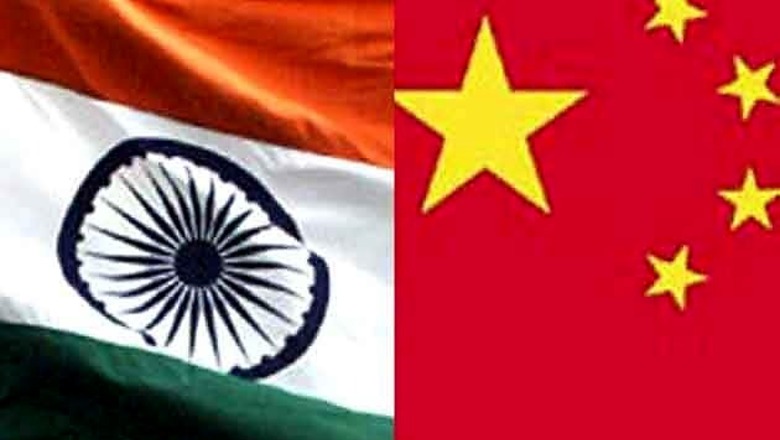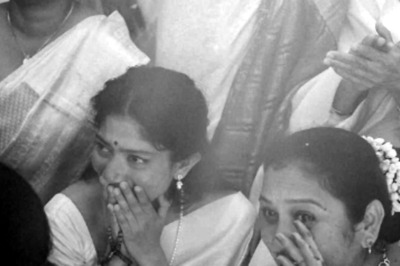
views
Beijing: Veteran Australian journalist Neville Maxwell has said he decided to release a classified 1962 Sino-Indian war report to rid Indian opinion of the "induced delusion" that India was the "victim of an unprovoked surprise Chinese aggression".
Parts of the still-classified Henderson Brooks Report (HBR), accessed by Maxwell, have found serious faults with Jawaharlal Nehru's Forward Policy and the Indian Army for carrying it out without the necessary wherewithal.
The report proves that talk about China's "unprovoked aggression" is "utterly false" and that India was the aggressor in 1962, Maxwell said in an interview to the Hong Kong-based South China Morning Post.
"But of course it's (HBR) not spelled out in those terms, the political conclusion is buried in dense military jargon, written by soldiers for soldiers, the report is hard reading for unversed civilians," he said.
To a question what he hopes to achieve by revealing HBR, Maxwell said: "I hope to achieve what I have been trying to do for nearly 50 years. To rid Indian opinion of the induced delusion that in 1962 India was the victim of an unprovoked surprise Chinese aggression, to make people in India see that the truth was that it was mistakes by the Indian government, specifically Prime Minister Jawaharlal Nehru, that forced the war on China.
He said his putting the report online deprives the Government of India "the excuse they've used to keep it secret, the false claim that it was to preserve national security".
"But nevertheless, the story emerges. From its very beginning as an independent state, India, which is to say Nehru in this context, took the view that the alignments of India's borders was a matter for India alone to decide, unilaterally, privately and definitively.
"Without for a moment considering that good sense and good international manners pointed to the need to bring Beijing in to discuss their common border, Nehru and his close advisors selected the alignment themselves and put out new maps showing them as full, formal, final international boundaries and including an area beyond what Britain had ever claimed, the Aksai Chin", the area captured by China in 1962 war.
He had been trying for years to get the report on to the public record, Maxwell said, adding that in 2012, he made the text available to several newspapers in India, who agreed it should be made public but thought that had to be done by the government.
When asked why Nehru, a known China ally, took such a strong line, Maxwell, who worked in India at the time as Time Correspondent said: "On that, I have come to some answers, guided by scholars like David Hoffman and Perry Anderson. Their reading is that the Indian leaders felt insulted by (late Chinese premier) Zhou Enlai's insistence on negotiations as they felt it impugned India's character as an ancient nation with defined boundaries."
Regarding the current border negotiations between India and China, Maxwell said he is hopeful of a settlement. "I noted with great relief that the magic phrase, the hey presto or abracadabra, "package deal" has recently emerged as jointly used in the official correspondence," he said.
Maxwell also alleged that British government in 1914 had falsified records about McMohan Line, which from Indian point of view formed part of the basis of India's perception of its over 4,000 km-long border with China.
"Start with seeing that India inherited a border dispute with China, it was congenital to independent India. The British created it in the mid-1930s when they decided that for strategic reasons they should push their north-eastern
frontier out some 60 miles," he said.
"They knew China would not agree to that, because they'd failed to persuade Beijing to give them that belt of territory by diplomatic pressure in the Simla Conference in 1914, and so beginning about 1936 they just took it, by force," Maxwell said.
Asked why would India follow that British line, he said, "it was a Faustian offer: "You keep quiet about what we did, and you get to keep the McMahon frontier: baulk, expose our trickery, give up the McMahon frontier territory, and what would your public and opposition think about it, Mr Nehru?"
To a question why he disclosed only a chunk of Volume I of the report and that where was the rest, Maxwell said: "I uploaded what I had. I never saw Volume Two. I understand it is mainly memos, written statements and other documents on
which the authors based the report."
Answering a question whether he hated Nehru, he said "hate" is "too strong a word". "I have only criticised his border policy. I knew Nehru well and liked him immensely, he was a man of great charm.




















Comments
0 comment